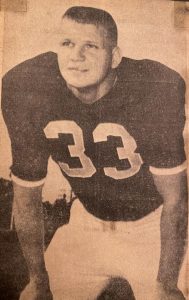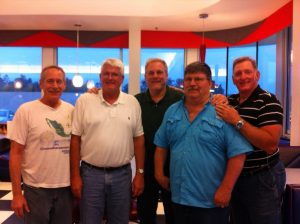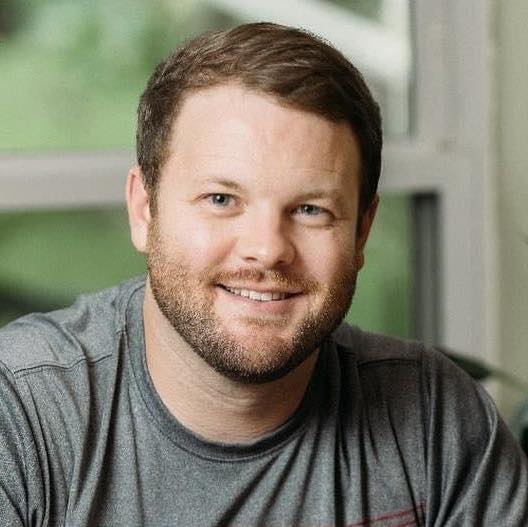Author’s note: This story was originally published in June of 2022.
The ‘dog days of summer’ always take me back to my high school years mowing yards, learning the value of a dollar and what it is to work in the blistering hot sun. However, it was hardly comparable to those dreaded two-a-day football practices I struggled to make it through.
“Sonny boy, just be glad you get water breaks and do not have to do this three times a day like I did,” my father would always tell me as I came home hardly able to stand from exhaustion while waiting to scarf down one of my mother’s delicious home-cooked meals.
Dad was an outstanding two-way player as a fullback and linebacker for Charleston (Mo.) High School. Charleston is a farming community just over two hours northeast of Memphis along the Mississippi River.
Prior to my dad’s junior season Charleston hired a new head football coach; a young defensive mind in his late twenties named Joe Black.
That was half of a century ago and, unbeknownst to my dad at that time, Joe would eventually play a major role in him moving to Arkansas permanently and the impact Joe had on him would be passed on to me.
From Small Town Arkansas to the National Stage
For context, I will provide some background.
About 20 years before Joe was born, a massive oil discovery in his hometown of Smackover, Arkansas swept the nation. If not for that, Smackover would be foreign land to most outside of South Arkansas or North Louisiana. Like many who resided in the area, Joe’s father was a roustabout in the oil fields while his mother stayed at home to care for Joe and his nine other siblings.
The first in a line of great football players to come from Smackover was Clyde Scott, who coincidentally was known as “Smackover” and is arguably the greatest multi-sport athlete Arkansas has ever produced.

Joe was one of a bevy of young boys growing up in the 1940s who idolized him. Scott was a primary reason Joe wanted to be an athlete and Joe would go on to star for the Buckaroos, leading the 4AA conference in scoring with 128 points during his senior season.
After graduating in 1962, Joe accepted a scholarship from Frank Broyles who was still in the early stages of building one of the nation’s top football programs at Arkansas during the 1960s. He was known as ‘Smacking Joe Black’ during his time with the Razorbacks, according to teammate Bobby Roper.
Joe was a part of the 11-0 1964 team that was awarded the national championship from the Football Writers Association of America and should have been unanimous champions, in my humble and opinion. Unfortunately for the Razorbacks, at that time the Associated Press and United Press International awarded their national champions prior to bowl games and Alabama was handed – yes, handed – the title from both outlets; but that is a different story for a different day.
Joe finally got his due as one of the key veteran defensive leaders in 1965 ,helping lead the Hogs to another undefeated regular season but fell in a New Year’s Day matchup against LSU in the Cotton Bowl before playing his final season in 1966.
Meet Joe Black
Fast forward to the summer of 1972, where the story really begins.
My dad and his teammates all gathered at the Charleston Blue Jay field house to meet their new head coach. Dad remembers Joe sitting on a table while addressing the team and then later going up to introduce himself.
“I have already watched some film and you are going to be my linebacker,” Joe told dad.
The 1972 season, to put it frankly, did not go well at all as the Blue Jays finished 1-9.
However, the 1973 season had the potential of being much better and for the most part it was. They started the season 7-0 going unscored upon, but things went south in the final three games as the Blue Jays went 0-3 to finish the year with a respectable 7-3 record. However, the valuable life lessons learned were the main point taken from that season.
You have to remember; this was 50 years ago. As I mentioned in the introduction there was no water back in those days during practice and you were probably as happy as a pig in the mud if you were given a salt block. But Joe taught them how to be tough and he believed in them.
Junior DeLay, dad’s lifelong friend and still a great family friend of ours to this day, shared a post on Facebook on the on the seven-year anniversary of Joe’s death in 2022 that reiterated that.
“Coach said he wished he could’ve coached us after a few more years’ experience as a head coach because we had so much talent and he didn’t know exactly how to utilize it fully. One thing was for sure, he had our respect and admiration and made playing for him fun.”

Dad graduated the following spring after the ’73 season and accepted a football scholarship to Murray State in Paducah, Kentucky where he spent a semester before deciding that he should look to finish his college career. Joe being his mentor, dad reached out to him for advice about what to do next. Joe recommended he take a look at Ouachita Baptist University, about five hours away from Charleston in Arkadelphia (Ark.).
Buddy Bob Benson was the head coach for OBU and a fellow former Razorback who played at Arkansas about ten years prior to Joe. Dad decided he wanted to make the move and he did so on a frigid winter night prior to the spring semester of the 1974-75 school year with my grandparents in tow to help him move in.
Long story short football did not work out there either, but dad decided to finish out his degree at OBU and from that point on would become a permanent Arkansan.
Once dad got to college, he and Joe for the most part lost touch for about 30 years. You know how it goes; life happens.
A Lifelong Impact
In February 1990, I was brought into the world. From my earliest memories I knew I wanted to be one of two things: a professional football player or have a sports career in some capacity.
I quickly learned that the former was not going to happen mainly because I simply was not near the athlete that even the guys I grew up with were, let alone would never be able to compete with the outstanding talent outside of Arkansas.
I recall many times Dad and I outside throwing the football and he would always tell me about this “Coach Black” guy. I knew he was my dad’s coach, but I had no clue he was on the most historic Razorback team of all-time, nor the life lessons dad and his friends took from him.
After all these years of hearing stories, I remember one summer day prior to my senior year in 2007 opening the Arkansas Democrat-Gazette and turning to the sports page as I did every day. I came across the ‘Coaching Changes’ section and when I looked down to Smackover, I remember seeing a familiar name as the new guy who would be leading the Buckaroos: Joe Black.
I was completely in shock. Of course I immediately called dad to tell him, hoping to get a chance to get down to south Arkansas and meet him. That did not happen, at least not until about a year later.
After I graduated high school, I went to the University of Central Arkansas before finishing my final college year at Little Rock.
I had been in Conway for about two weeks in the fall of 2008 and was on the intramural field socializing when I looked over across the fence and saw two guys with shorts on that said “Smackover Football.”
Of course, I immediately went over and introduced myself telling them how their high school head coach had coached my dad over three decades prior.
Those two were Greg Harris and Braxton Yeager, whom I still consider friends to this day though life has also happened to us and we do not speak near as much. I was actually roommates with Greg for two years, along with Johnathan Martisek, another great friend I met through them who played for Joe.
We all became friends quickly after that and the day finally came where I would get to meet Joe, the man I learned so much from but had never seen in person or talked to in any manner.
Braxton left his laptop in Smackover after visiting his family the previous weekend, so I decided to ride down with him and grab it.
We got to the school and made our way to the fieldhouse shortly before football practice was about to begin and I see Joe from a distance: black hat with a Buckaroo logo, white collared shirt, black shorts, white socks, and black shoes. Smackover colors, but also likely his consistent practice attire for his entire coaching career that lasted five decades.
I shook his hand, told him who my dad is, and we sat down to talk football until he had to go out to practice a few minutes later.
I saw him again later in the fall during the postseason in the second round of the playoffs when Smackover found itself down late to Mount Ida, but rallied to win 22-20.
A jubilant Joe was so appreciative I got to be there and as I was walking off he exclaimed, “Tell your dad I love him!”
That was the final time I ever saw or talked to him and the last career postseason game Joe would win as a head coach. He stayed at Smackover for through the 2009 season and moved on to coach in the El Dorado school district until his death in June 2015.
I do not believe I ever told him, but Joe had a giant impact on my life although it was indirectly through my dad.
I will be honest, my dad and I have had our tough times. However, he taught me many life lessons some of which certainly came from my grandfather and great uncles when he worked for them during those hot summers in the southeast Missouri fields. But Joe also gets some of the credit for those.
Joe was hard on his players, very hard. However, he loved them and they knew that.
During my career in sports media, I have covered a decent number of coaches and have had the great honor of telling many of their stories via my podcast Gridiron Icons: Arkansas’ Greatest High School Coaches.
With full confidence, I feel that I can speak for thousands of others when I say Joe’s legacy will continue to live on whether you had the honor of meeting him or not.

Kyle Sutherland is a journalist and podcast host (Arkansas Preps Weekly) for The Natural State Sports Network. His written work has been featured in outlets including the Arkansas Democrat-Gazette, Best of Arkansas Sports and Hooten’s Arkansas Football. He is also the color commentator for 103.7 The Buzz’s high school football Game of the Week. Email Kyle at kyle@naturalstatesports.com.